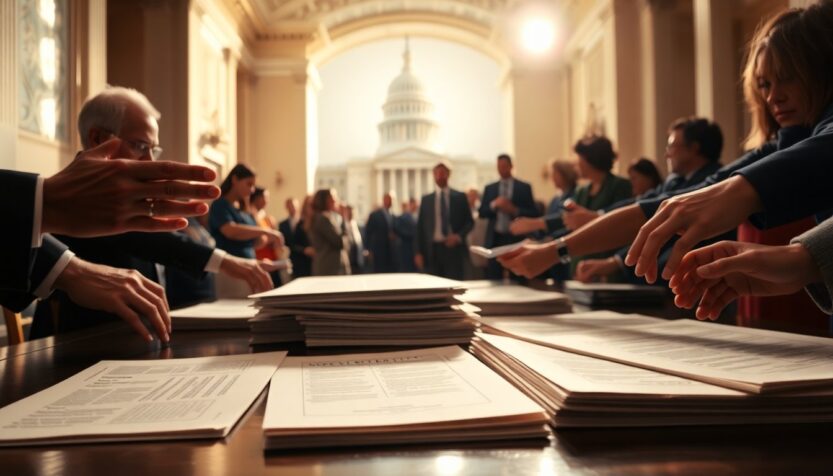After a prolonged period of increasing pressure and ongoing disclosures that have adversely affected President Donald Trump, the House of Representatives has made a notable decision. On Tuesday, the House unanimously passed a bill requiring the Department of Justice to disclose all records related to convicted sex offender Jeffrey Epstein. This legislative action underscores the necessity for transparency and reflects shifting political dynamics concerning Epstein’s controversial legacy.
The legislative journey
The initiative emerged from the collaborative efforts of Congress members Ro Khanna, a Democrat, and Thomas Massie, a Republican, during the summer months. They aimed to address rising concerns following Attorney General Pam Bondi’s assertion that there was no evidence indicating Epstein’s death was anything other than a suicide. This statement, along with the lack of evidence implicating others in Epstein’s illicit activities, intensified the demand for further information.
Initially, President Trump and his party resisted calls for disclosure. However, as scrutiny increased—partly due to emails released by the House Oversight Committee that reignited discussions about Trump’s past associations with Epstein—the president changed his position. Just days before the vote, he stated, “We have nothing to hide,” despite having previously encouraged his party members to oppose the bill.
Voting dynamics and political implications
The bill received overwhelming bipartisan support, passing with a vote of 427-1. Only Republican Clay Higgins from Louisiana opposed the measure. Higgins raised concerns that the bill could compromise the privacy of innocent individuals whose names might unintentionally appear in the documents. He criticized the resolution for disregarding established principles of criminal justice, stating, “It abandons 250 years of criminal justice procedure in America.”
This substantial backing represents a significant shift from previous divisions within Congress regarding the Epstein files. At one point, former President Donald Trump had even opposed the legislation and supported primary challenges against its advocates. However, the collective pressure from Epstein survivors, many of whom were present during the vote, was instrumental in garnering support for the resolution.
What is included in the resolution?
Newly passed bipartisan legislation mandates the Department of Justice to release “all unclassified records, documents, communications, and investigative materials” related to Jeffrey Epstein’s case and his death in 2019. Estimates indicate that around 100,000 pages of relevant documents could clarify Epstein’s life and criminal activities.
Epstein’s death, officially ruled a suicide, occurred during Donald Trump’s presidency. However, the circumstances surrounding it, along with Epstein’s connections to influential figures such as Trump and former President Bill Clinton, have sparked ongoing conspiracy theories. This case is particularly significant among Trump’s supporters, who speculate that if he were to be re-elected, he might eventually reveal these files.
What lies ahead?
The bill now moves to the Senate, where its future remains uncertain. Senate Majority Leader John Thune’s response will be crucial. Meanwhile, Chuck Schumer, the minority leader, has indicated his intention to expedite the process. Should the Senate approve the legislation, it will require the endorsement of former President Trump. When questioned about his willingness to sign the bill, Trump expressed his support, stating, “I’m all for it.”
However, a pertinent question is whether Trump can independently release these files. The answer is affirmative. Despite this, he has not taken action, and his reluctance to clarify his stance has raised concerns. When approached by reporters, he responded defensively, reprimanding a journalist from ABC News.
Concerns about transparency
Following the passage of the legislation, questions remain regarding the actual release of related documents. Certain materials may be exempt from public disclosure, particularly classified documents or those connected to ongoing investigations. Representative Marjorie Taylor Greene has expressed concerns that the administration might exploit these loopholes to withhold essential information. “The real test will be,” she stated, “will the Department of Justice release all the files? Or will it all remain tied up in investigations?”
The ongoing saga surrounding Jeffrey Epstein continues to provoke strong emotions and raise questions about accountability. As the public awaits the release of the files, the implications of this legislation extend beyond the political sphere, impacting issues of justice, transparency, and the dynamics of power within elite circles.

